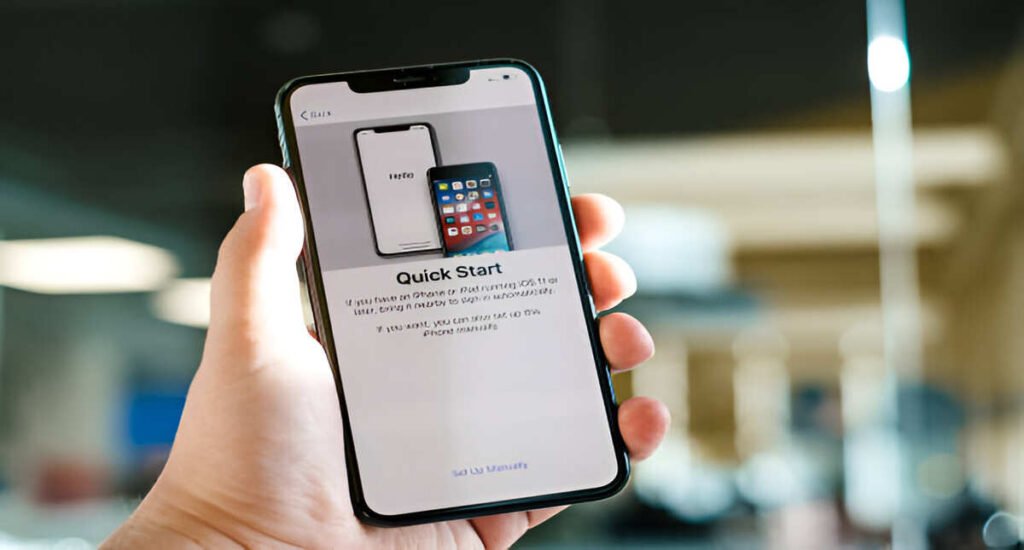Many smartphone users have one major complaint: their phones get slower over time. Apps take longer to open, battery drains faster, and the phone just doesn’t feel as snappy as it used to. But if you’ve used an iPhone, you might have noticed something different. iPhones tend to stay fast, even after years of use. So, what’s the secret? Why iPhones don’t slow down with time like many Android phones do?
Apple Controls Both Hardware and Software
One of the biggest advantages Apple has is full control over its ecosystem. Unlike Android phones, where companies like Samsung or Xiaomi build the hardware and Google provides the software, Apple creates both the iPhone and the iOS operating system.
Because of this, Apple can make sure that the hardware and software are perfectly optimized to work together. This means better performance, fewer bugs, and longer support. When software is made specifically for the hardware, it runs more efficiently and smoothly.
Regular and Long-Term iOS Updates

iPhones receive iOS updates for many years. For example, even the iPhone 8, launched in 2017, can run iOS 16 or later. This is rare in the Android world, where most phones get updates for just 2-3 years.
These updates not only bring new features but also improve security and system performance. Apple keeps older devices in mind while designing updates, so older iPhones can still run smoothly with the latest software.
Powerful Chips Even in Older Models
Apple’s A-series chips are incredibly powerful. In fact, even older iPhones have chips that can compete with some of the latest Android devices. For example, the A13 Bionic chip in the iPhone 11 is still faster than many 2023 Android phones.
Because these chips are overbuilt in terms of performance, they don’t struggle as the phone ages. Users can run demanding apps, play games, and multitask without major slowdowns for several years.
Efficient Memory Management
iPhones don’t have as much RAM as some Android phones, but they don’t need it. Apple uses a different approach to manage memory. iOS is designed to be more efficient with less RAM. This means apps are managed better in the background, reducing lag and crashes.
Android phones sometimes need more RAM to match the same level of smooth performance because of how the operating system handles tasks.
Better App Optimization

Apple’s App Store has strict guidelines for developers. Apps must meet certain standards to be accepted. This leads to better-quality apps that are optimized for the iPhone’s hardware.
In contrast, Android developers have to build apps for hundreds of different devices, which can cause performance issues. Because iOS apps are made for a smaller range of devices, they usually run faster and smoother.
Battery Management and Performance
There was once a controversy when Apple admitted it slowed down older iPhones to prevent unexpected shutdowns due to battery aging. But Apple has since added a feature that lets users control this setting.
Now, iPhones give users more transparency. To check the condition of your battery, you can access its settings. The performance management option is even deactivatable if you so want. This level of control helps users keep their iPhones running fast.
Minimal Bloatware
iPhones come with fewer pre-installed apps compared to many Android phones. Android manufacturers often add their own apps or third-party apps that you may not need. These apps can slow down your phone and use extra storage and RAM.
With iPhones, what you get is a clean system without unnecessary bloatware. This helps maintain speed over time.
Quality Build and Fewer Models
Apple only releases a few iPhone models each year, and they’re all built with high-quality parts. This allows Apple to focus more on software updates and testing. Fewer models also make it easier to optimize apps and iOS.
Meanwhile, Android phone manufacturers create hundreds of variants every year. This can lead to inconsistent performance and less attention to older models.
User Habits and iCloud Integration
Apple promotes the usage of iCloud for storing files, communications, and images. This helps free up internal storage and improves performance. iPhones also come with tools to clear storage and offload unused apps, keeping the system clean and fast.
On the other hand, many users of Android devices store everything locally, which can slow down the device as storage fills up.
Final Thoughts

So, why don’t iPhones slow down with time? It’s a mix of great hardware, powerful software, and smart design choices. Apple’s control over the entire iPhone experience — from the chip to the app — allows for long-lasting performance. Add to that regular updates, fewer background tasks, and efficient storage management, and you get a phone that can stay smooth for years. Follow for more updates on Tech Education.
Frequently Asked Questions
Do iPhones really not slow down over time?
iPhones can experience some slowdown as they age, especially if the battery degrades. However, compared to many other phones, iPhones stay fast for longer because of powerful chips, smooth iOS updates, and Apple’s control over hardware and software. Most users notice their iPhone stays usable and quick even after 3–5 years.
What makes iPhones more durable than Android phones?
iPhones last longer mainly because they receive software updates for many years, use high-quality hardware, and have well-optimized apps. Apple supports older models with updates and features that keep them running smoothly, while most Android phones stop getting updates after 2–3 years.
How does Apple keep iPhones fast with less RAM?
Apple designs iOS to be very efficient, so it doesn’t need as much RAM to perform well. Unlike Android, which handles multitasking differently, iOS manages memory smartly. That’s why iPhones can run fast with 4GB or 6GB RAM, while many Androids need 8GB or more to match the performance.
Does updating iOS make old iPhones slower?
No, even on older phones, iOS updates are made to enhance performance. In the past, some updates caused slowdowns due to battery health issues, but now Apple gives users tools to manage performance. Most updates actually help older iPhones run better and more securely.
What can I do if my iPhone starts feeling slow?
If your iPhone feels slow, try these steps:
- Go to Settings > Battery > Battery Health to check the condition of the battery.
- Free up storage by deleting unused apps or large files.
- Restart your phone to clear background processes.
- Update to the latest iOS version.
- Reset settings if needed.